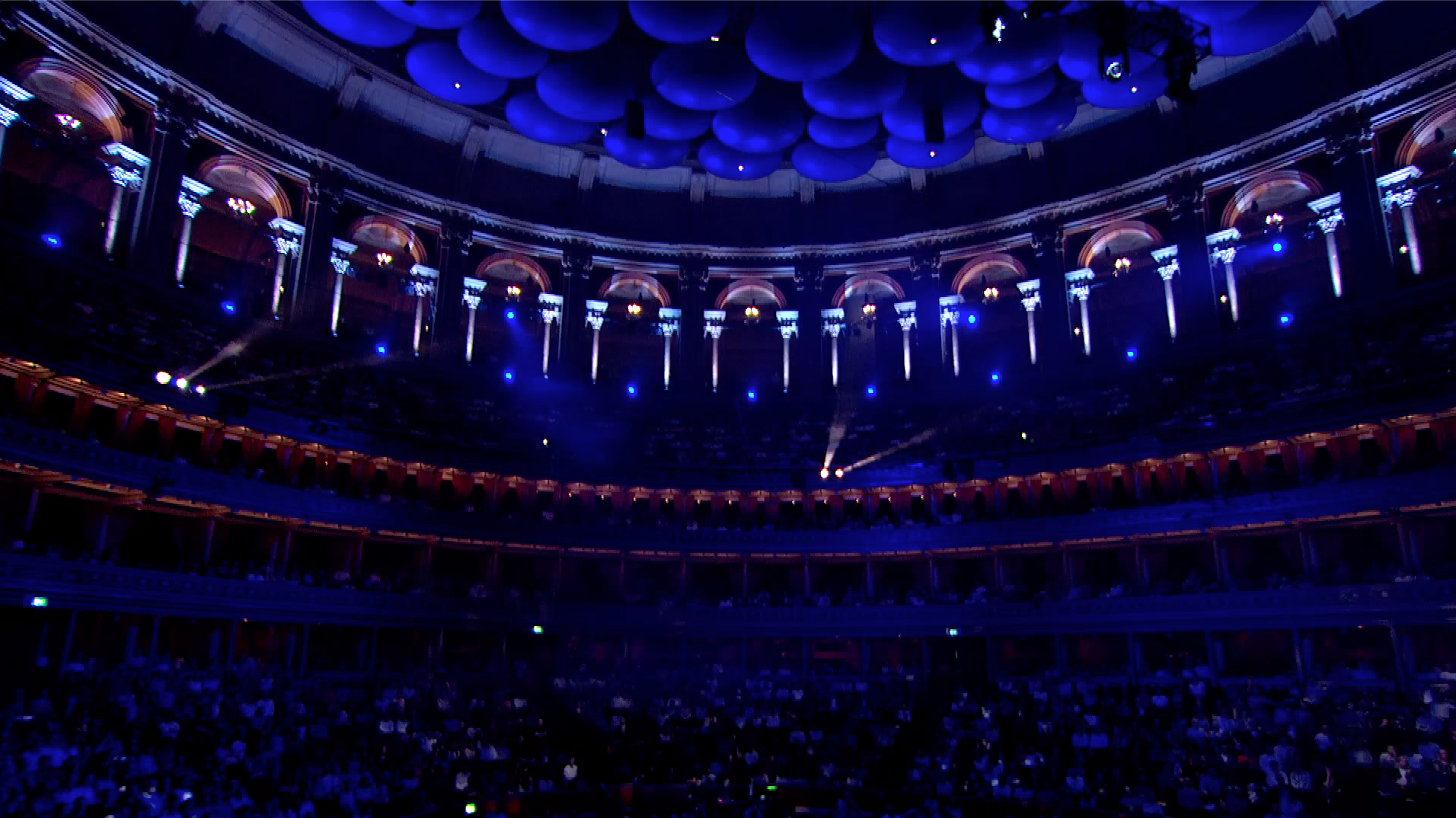Anoushka Shankar and Jules Buckley: New Explorations
Friday 4 September, 7.30pm–c9.00pm
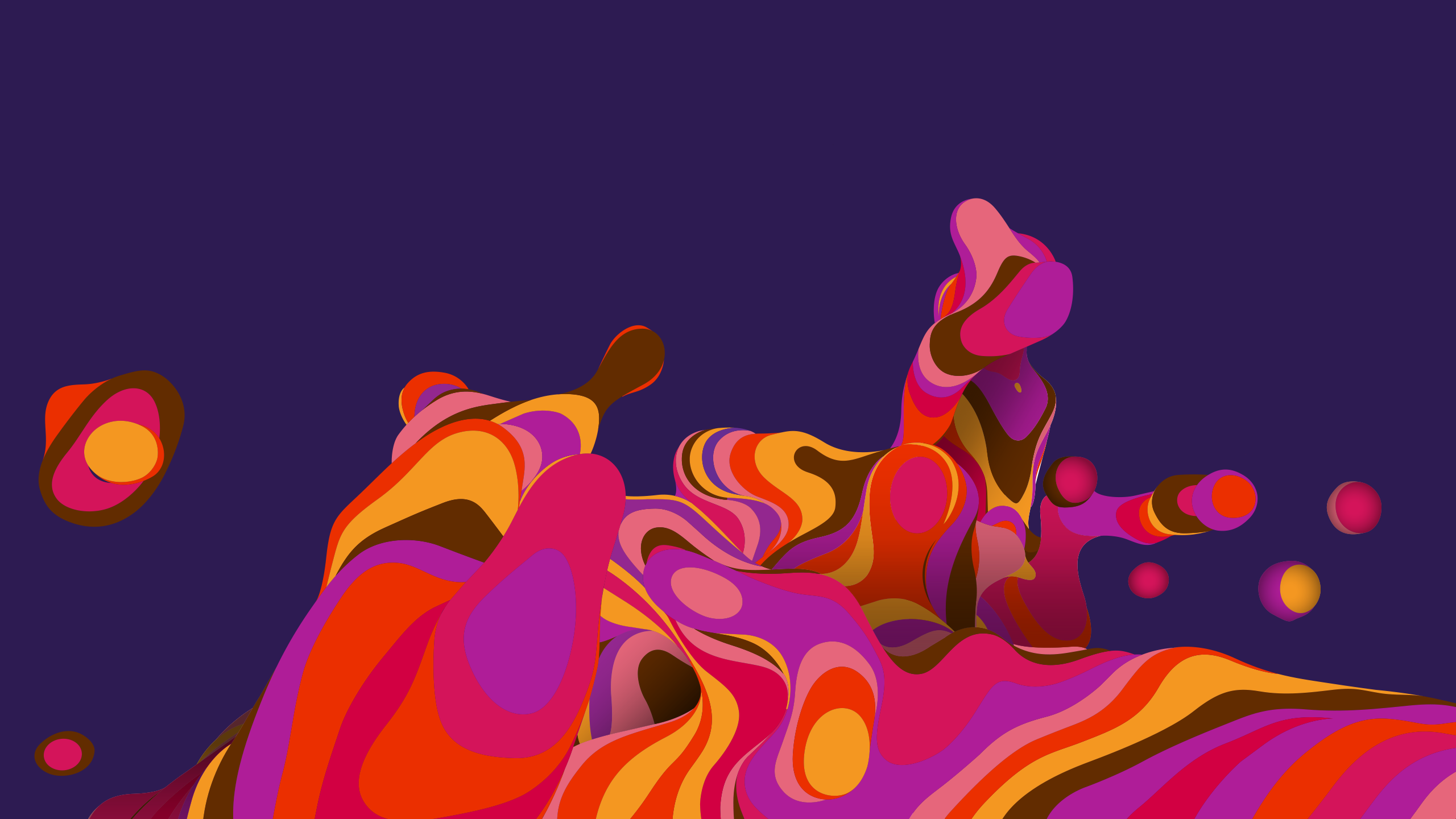
Part 1: Variations
Anoushka Shankar with Gold Panda c32’
(pre-recorded earlier this afternoon)
Part 2
Anoushkar Shankar with Manu Delago and Britten Sinfonia c41’
Wandering Around
Voice of the Moon
Maya
Flight
Traveller
Jannah
Chasing Shadows
Land of Gold
Anoushka Shankar sitar
Gold Panda live electronics
Manu Delago handpan/drums
Tom Farmer double bass
Britten Sinfonia
Jules Buckley conductor

This concert is broadcast live by 大象传媒 Radio 3 and on 大象传媒 Four at 8.00pm. You can listen to any of the 2020 Proms concerts on 大象传媒 Sounds or watch on 大象传媒 iPlayer until Monday 12 October.
Welcome to tonight’s Prom
In a typically boundary-crossing Prom, Jules Buckley has devised a project of collaborations with star sitar player and composer Anoushka Shankar at its centre.
In the centenary year of her father Ravi Shankar’s birth and with the aim of presenting ‘ragas and the sitar in a new light’, she and composer/producer Gold Panda have created a new work for sitar and live electronics based on a selection of Ravi Shankar’s iconic orchestral compositions.
Alongside conductor and arranger Jules Buckley, Anoushka Shankar has produced new arrangements of her own pieces for the Britten Sinfonia strings, who are joined by her regular collaborator percussionist, Manu Delago. Among them are ‘Voice of the Moon’, ‘Flight’, ‘Chasing Shadows’ and ‘Land of Gold’.
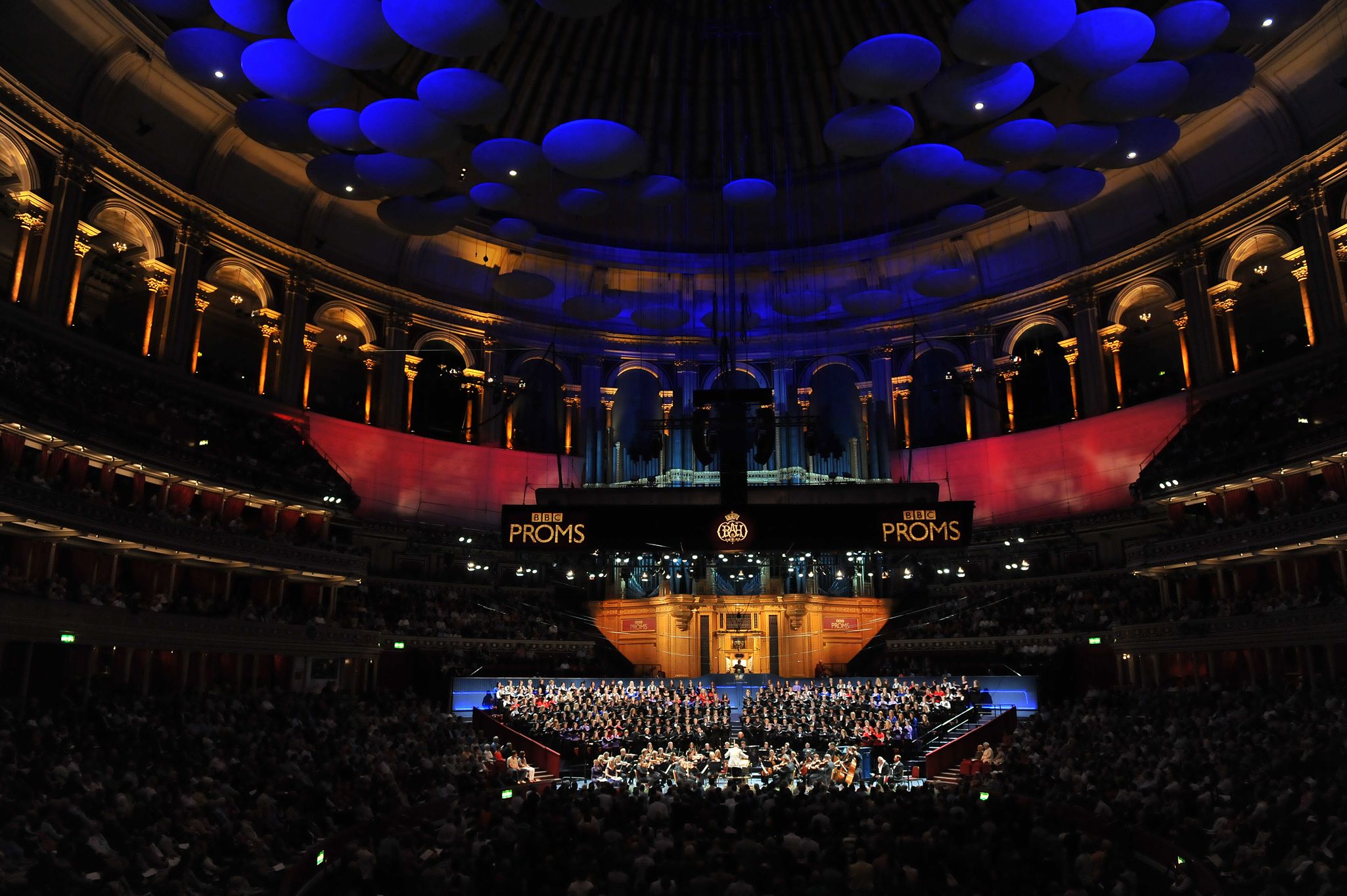
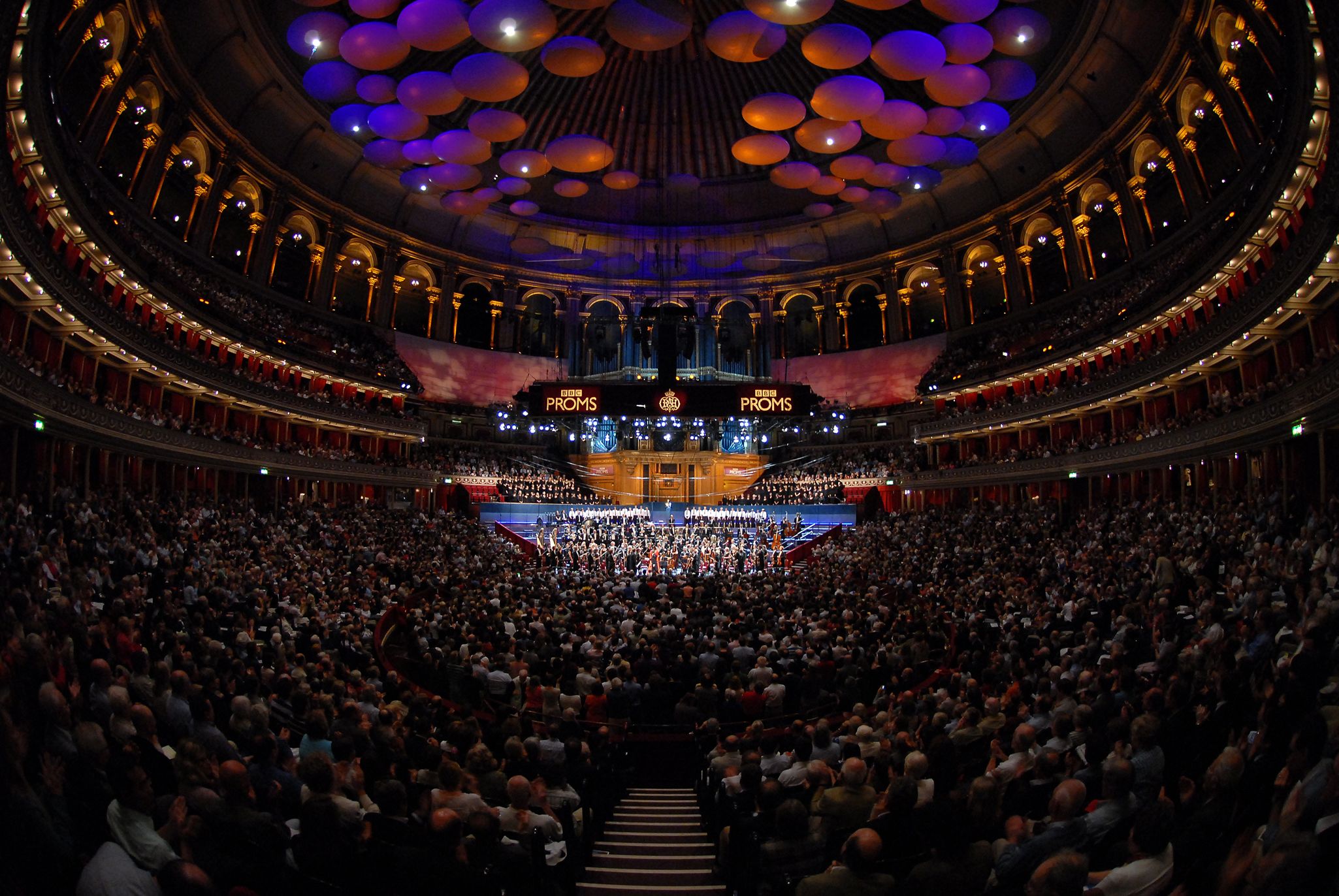
Welcome to tonight’s Prom
In a typically boundary-crossing Prom, Jules Buckley has devised a project of collaborations with star sitar player and composer Anoushka Shankar at its centre.
In the centenary year of her father Ravi Shankar’s birth and with the aim of presenting ‘ragas and the sitar in a new light’, she and composer/producer Gold Panda have created a new work for sitar and live electronics based on a selection of Ravi Shankar’s iconic orchestral compositions.
Alongside conductor and arranger Jules Buckley, Anoushka Shankar has produced new arrangements of her own pieces for the Britten Sinfonia strings, who are joined by her regular collaborator percussionist, Manu Delago. Among them are ‘Voice of the Moon’, ‘Flight’, ‘Chasing Shadows’ and ‘Land of Gold’.


The sitar is the instrument most emblematic of India. The person principally responsible for that status was the late Ravi Shankar, whose centenary is being marked this year, and tonight’s Prom presents his younger daughter, the virtuoso and composer Anoushka Shankar, who has taken on his mantle as the sitar’s best-known exponent. But she is taking the instrument in her own directions, and this concert presents her in two contrasting ventures.
Part 1 sees the UK premiere of Variations, her collaboration with the British electronic-music composer Gold Panda that reimagines the music of her father. This project continues an ongoing exploration of electronic music that sees her reaching out across the sound spectrum. She improvises on sitar in authentic Indian raga forms while Gold Panda plays a mixture of live electronics, triggered samples of her father’s recordings and interwoven digital textures, rhythms and melodies. The music is not written down – the sense is more of a continual collaboration – so what follows is only a general guide based on the only previous performance of this project.

A fusion of minds and sounds: Gold Panda and Anoushka Shankar in rehearsal (Laura Lewis)
A fusion of minds and sounds: Gold Panda and Anoushka Shankar in rehearsal (Laura Lewis)
Variations is a continuous suite with three sections. To the backdrop of an electronic drone, it opens with Ravi Shankar explaining that ‘ragas are precise melody forms’, a voice sample from his 1957 US album The Sounds of India. But where he demonstrated on sitar by using the raga Darbari kanada, Anoushka has selected the evening raga Yaman kalyan, her father’s favourite, which she elaborates in the serene alap style. This choice enables her to segue into a sitar-and-electronics revamp of the third movement of her father’s Sitar Concerto No. 2 – one of his finest moments as a composer – which was written in the same raga. As the digital textures build, her sitar line accelerates and the first section ends as she plays a tihai, a thrice-repeated capping phrase.
The middle section of Variations commences with a lyrical reinterpretation of the second movement of her father’s Sitar Concerto No. 1 (which she performed in full at the Proms in 2005). The raga here is Sindhi bhairavi, which has a yearning mood. Gold Panda takes an arpeggio line, develops it and remodels its textures while Shankar reinvents the sitar line. They move onto a new piece in the dawn raga Bhairavi, advancing through different tempos. Here Gold Panda samples drum parts from a Ravi Shankar vinyl album to create new rhythms over which Anoushka improvises at a sometimes bewildering pace.
The final section returns to Yaman kalyan to explore two more Ravi Shankar pieces. We hear him tenderly singing the Hindi words of ‘Hey Nath’, the sublime prayer for peace from Passages, his 1990 album collaboration with Philip Glass, which received its world-premiere live performance at the Proms in 2017, featuring Anoushka as soloist. Anoushka’s sitar line then shifts into a reworking of Sandhya Raga, an ensemble piece from Ravi’s album Inside the Kremlin. As she deploys a loop pedal to layer her melodies, we can expect the tempo to pick up, the trance vibe to intensify and an extended sitar improvisation to lead us to the climax.
Part 2 of tonight’s Prom features orchestral arrangements of Anoushka’s compositions, reuniting her with both the Britten Sinfonia – following their performance of Passages at the 2017 Proms – and the conductor Jules Buckley, who has performed with her several times and has either written or commissioned the arrangements for this evening. Anoushka also explores the sitar’s relationship with the handpan, as she shares the spotlight with the percussionist and composer Manu Delago, a regular recent collaborator. The handpan, which consists of two steel half-shells joined at the rim, has similarities to the steel drum and the south Indian ghatam. It has both percussive and melodic qualities, and Delago credits it with turning him into a composer.
The first piece is one of Delago’s own. He wrote Wandering Around in 2011 during a month-long residency in Manchester with Björk, with whom he has toured often as her drummer. It has three main components: the Indian-tinged melodic material, which he introduces himself on handpan, before the strings develop it; a portentous octave-driven bass line played in this arrangement by cellos and double basses; and a deep percussive tone that he creates on an upside-down handpan.
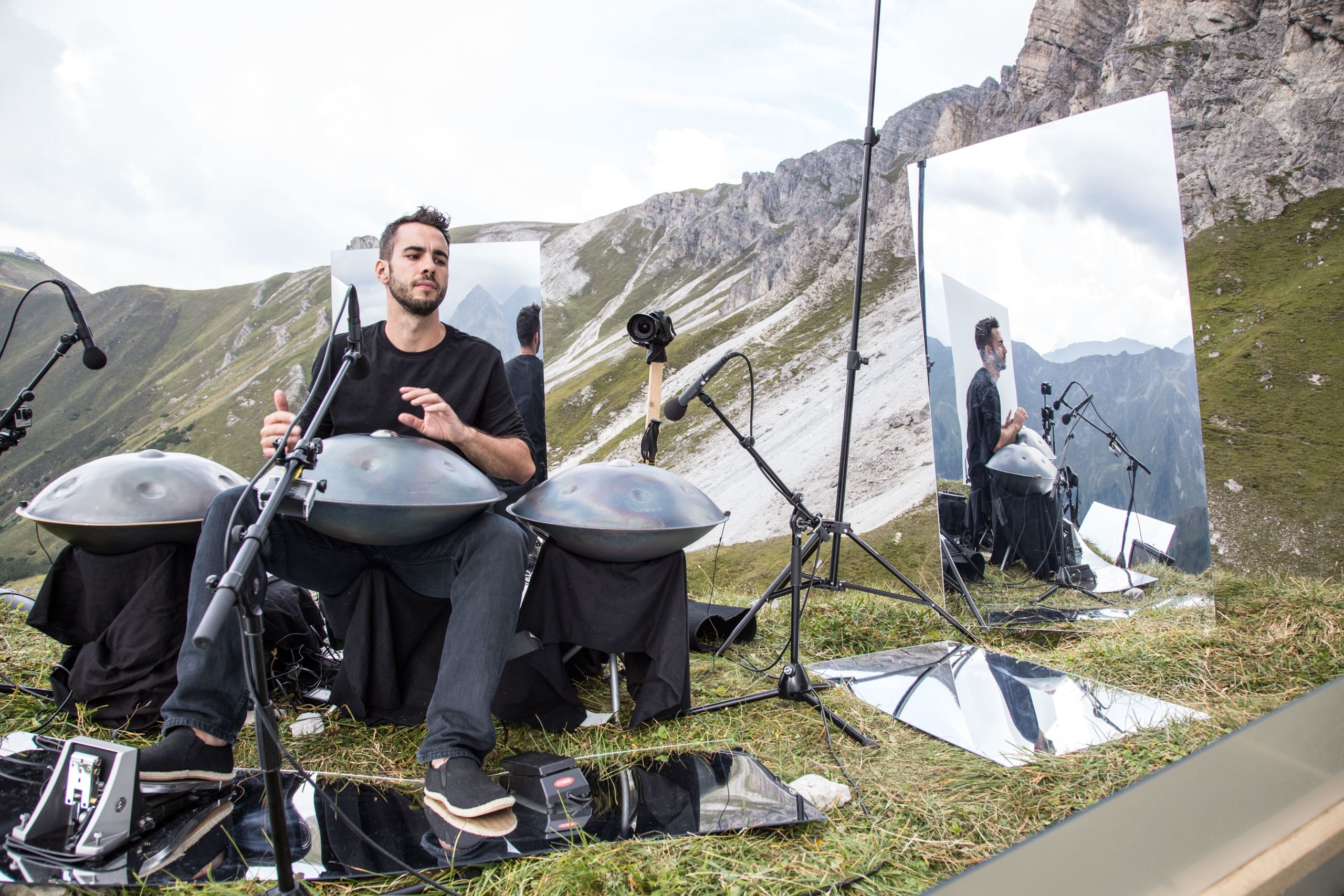
Have pans, will travel: Manu Delago recording the video ‘Freeze’ in the Austrian Alps (Maria Kirchner)
Have pans, will travel: Manu Delago recording the video ‘Freeze’ in the Austrian Alps (Maria Kirchner)
Anoushka’s 2005 release Rise was widely acclaimed for the electronic elements it introduced to her sound, but it also revealed her imagination as an arranger within Indian classical structures. Voice of the Moon, based on raga Kirwani, was originally written for santoor (the Indian hammered dulcimer), violin, cello, sitar and tabla, but she has performed it in many arrangements. Here, her sitar dovetails with Delago’s handpan and the strings of the Britten Sinfonia. It remains one of her live favourites.
Anoushka first approached Delago after being profoundly struck by the sound of the handpan, and felt that sitar and handpan – both resonant, overtone-rich instruments – worked beautifully in tandem. Just as importantly, these two musicians from different musical backgrounds found they complemented each other creatively. Anoushka invited him to contribute to her 2013 album Traces of You, produced by Nitin Sawhney and released the year after her father’s passing.
Delago asked if he might write a piece for the album. She agreed, and suggested including cello. The result, the co-written Maya, was the first time she had invited anyone else to compose for her, apart from her father earlier in her career. She found it fresh and inspiring to have someone from outside the Indian tradition write a sitar part for her.
The album also included Flight, a deceptively simple piece she built around a spellbinding melody on sitar. The title references the idea of a soul soaring away, perhaps at the moment when it leaves the body after death.
Lately Anoushka has sought to avoid defining her new music in terms of labels and has enjoyed the creative freedom in this new space.
Traveller is from Anoushka’s 2011 album of the same name that delved into flamenco and its ancient Indian roots. The project involved deep research into common rhythmic cycles and melody forms, but this track was a light-hearted pay-off written near the end, based more simply around a beguiling pentatonic sitar melody set against flamenco rhythms. Delago plays drum kit here and on the following two pieces.
Jannah, composed in 2007, is another work first written for an Indian ensemble, which Anoushka has played in many different live incarnations. Structured around the 12-beat cycle ektaal, it is rhythmically dynamic and playful. The title is a contraction of Janasanmodini, the raga – one of many originally created by her father – in which it is written; but it is also the Arabic word for paradise, and for her the melody inspires a sense of joy and the beauties of nature.
Lately Anoushka has sought to avoid defining her new music in terms of labels and has enjoyed the creative freedom in this new space. However, she remains a supremely gifted Indian classical performer too, as she demonstrates in Chasing Shadows. The urgent main melody was written in the raga Jog by Vishwa Mohan Bhatt, a senior disciple of her father, before Anoushka finalised the composition. She has played it live regularly since 2005.
The album Land of Gold saw Anoushka intensify her collaboration with Delago. They co-wrote eight pieces, including the title-track, which first emerged as an instrumental. The vocal lines that adorn its recorded version, added by the singer Alev Lenz, were a response to the tragic drowning in 2015 of the 3-year-old Syrian boy Alan Kurdi, and the album ultimately took on the theme of the refugee crisis, which viscerally affected Anoushka. The instrumental version of the song that she plays here still carries the same meaning for her.
Programme notes © Oliver CraskeOliver Craske is the author of ‘Indian Sun: The Life and Music of Ravi Shankar’ – the first full biography of his subject – which was published this year (Faber & Faber).
Biographies
Jules Buckley conductor
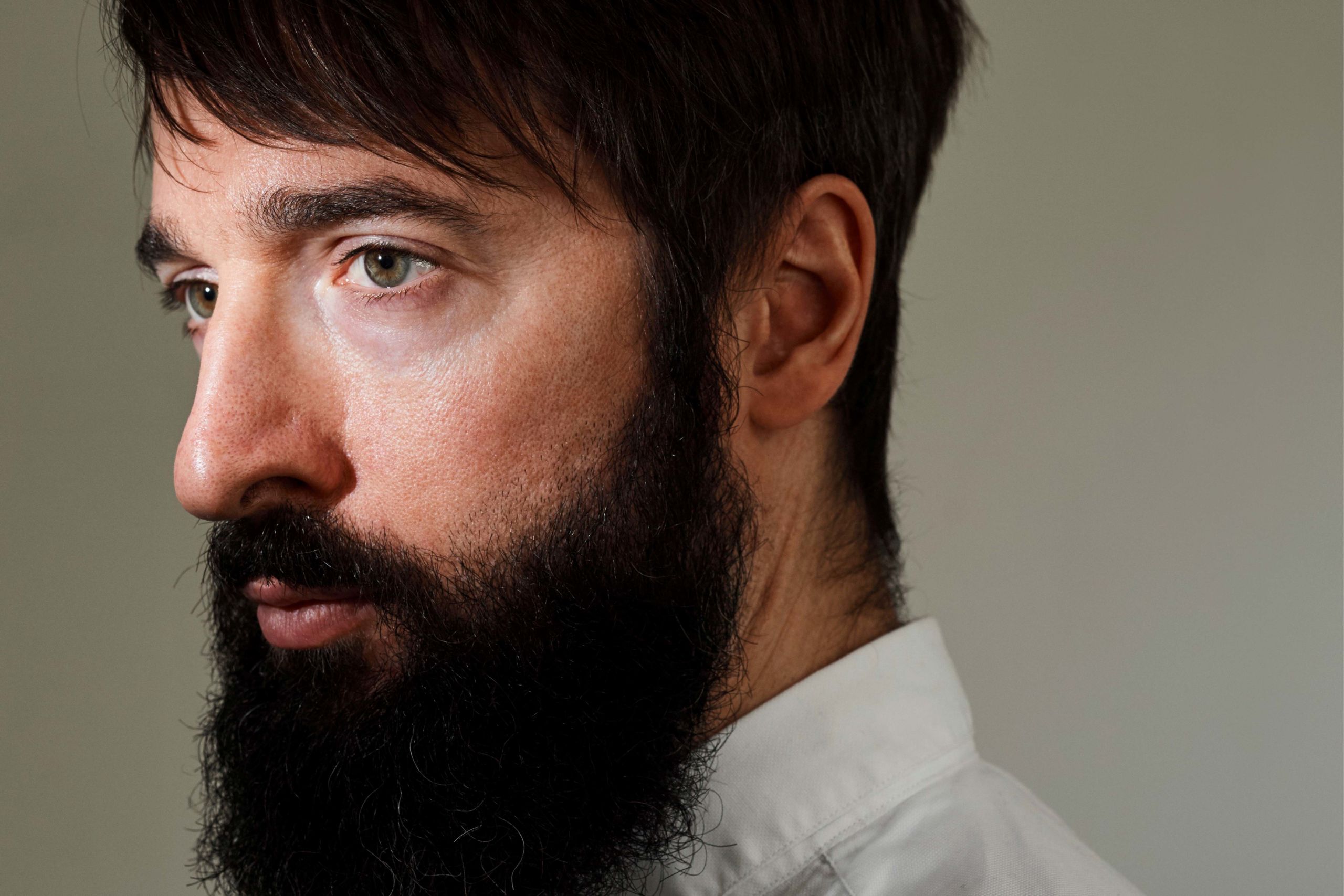
Jules Buckley (Ryu Voelkel)
Jules Buckley (Ryu Voelkel)
British composer, orchestrator and conductor Jules Buckley is Honorary Conductor of the Netherlands-based Metropole Orkest (having been Chief Conductor, 2013–20), co-founder and conductor of the UK’s Heritage Orchestra and Creative Artist in Association with the 大象传媒 Symphony Orchestra.
A regular at the 大象传媒 Proms, his recent appearances here have included the ‘Ibiza’ Prom with 大象传媒 Radio 1 DJ Pete Tong, tributes to Quincy Jones, Charles Mingus, Jacob Collier and Nina Simone, a snapshot of the New York music scene and last year’s project ‘The Breaks’, featuring breaking crew Soul Mavericks.
He has also worked with artists including Tori Amos, Arctic Monkeys, John Cale, Benjamin Clementine, Chilly Gonzales, Dizzee Rascal, Massive Attack, Professor Green, Emeli Sandé and Snarky Puppy (with whom he won a GRAMMY for the album Sylva).
Among the orchestras he has conducted are the 大象传媒 Concert and 大象传媒 Scottish Symphony orchestras, Helsinki and Rotterdam Philharmonic orchestras, National Symphony Orchestra (Washington DC), SWR Big Band and WDR Symphony Orchestra, Cologne, and the Zurich Chamber Orchestra.
Jules Buckley is guest curator of the Cheltenham Music Festival for 2020 and 2021, and this year has been a guest presenter of Radio 3’s award-winning Classical Fix podcast.
Anoushka Shankar sitar
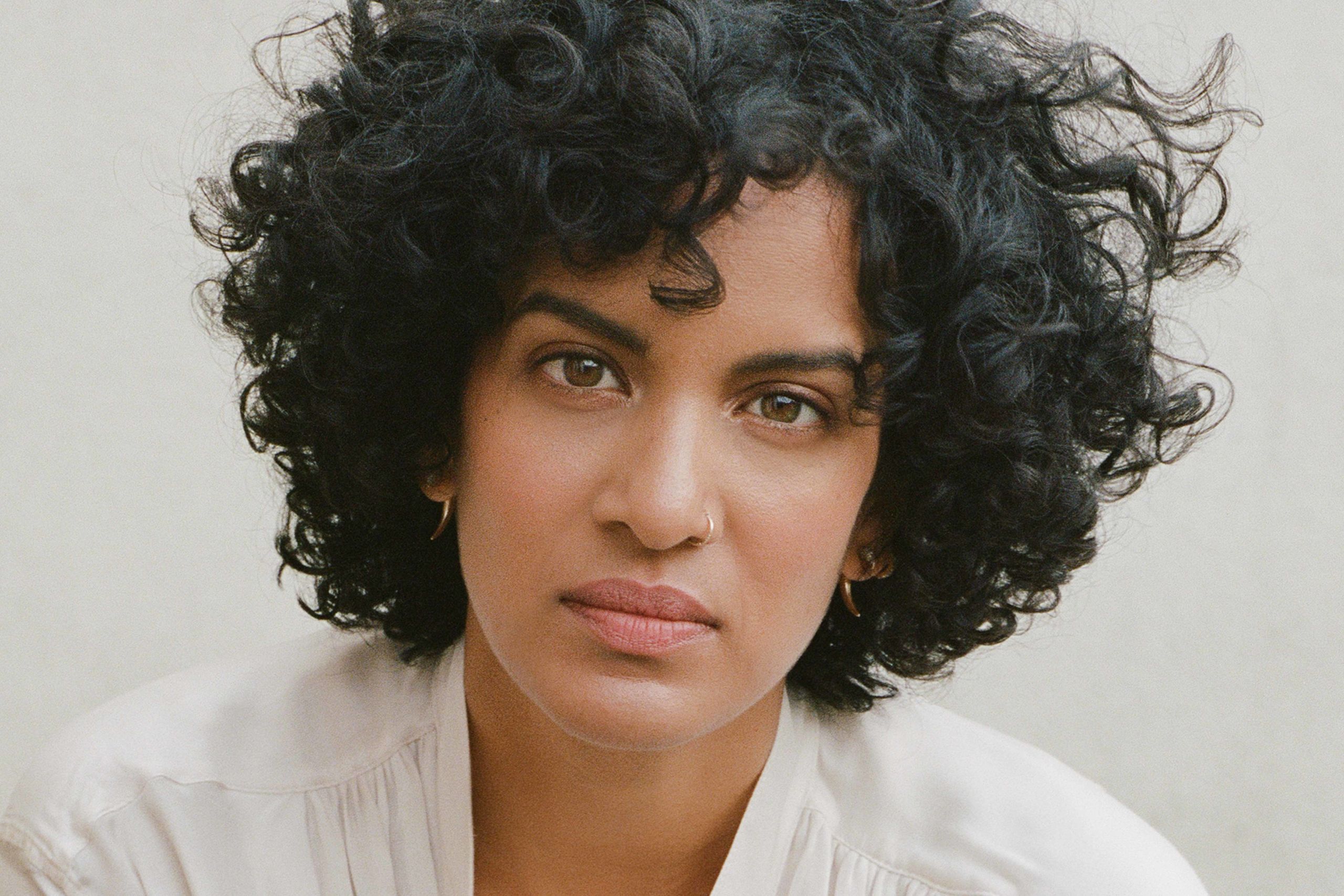
Anoushka Shankar (Laura Lewis)
Anoushka Shankar (Laura Lewis)
British-Indian-American sitarist and composer Anoushka Shankar is a genre-defying musician equally at ease in classical, contemporary, world, acoustic and electronic musical spheres. Among her accolades are six GRAMMY nominations, two Eastern Eye ACTA Awards, Honorary Membership of the Royal Academy of Music and a Songlines Best Artist Award.
She began studying the sitar at the age of 9 under her father, the legendary Ravi Shankar, and made her performing debut aged 13. At 15 she helped to create her father’s album Chants of India, produced by George Harrison. By 20, she had toured the world multiple times and made three solo albums of Indian classical music.
In 2005 Anoushka Shankar released her first self-composed, self-produced album, Rise, beginning an ongoing journey of exploration and musical self-discovery. Further albums include the flamenco-sitar breakthrough Traveller (2011), Traces of You (2013, featuring her half-sister Norah Jones), the self-assured return to Indian-classical music on Home (2015), and Land of Gold (2016), written in response to the global humanitarian refugee crisis. Earlier this year she released an internationally acclaimed EP of intimate songs titled Love Letters.
She has showcased the versatility of her instrument in collaborations with diverse artists including Joshua Bell, Herbie Hancock, Ibeyi, Nitin Sawhney, Patti Smith, Sting and His Holiness the Dalai Lama.
More recently, Anoushka Shankar has turned her energy towards composing for film and television, commissioned by the British Film Institute to create a new score for the iconic 1928 classic silent film Shiraz, and co-composing Mira Nair’s adaptation of A Suitable Boy for 大象传媒 One.
Gold Panda live electronics
Proms Debut Artist
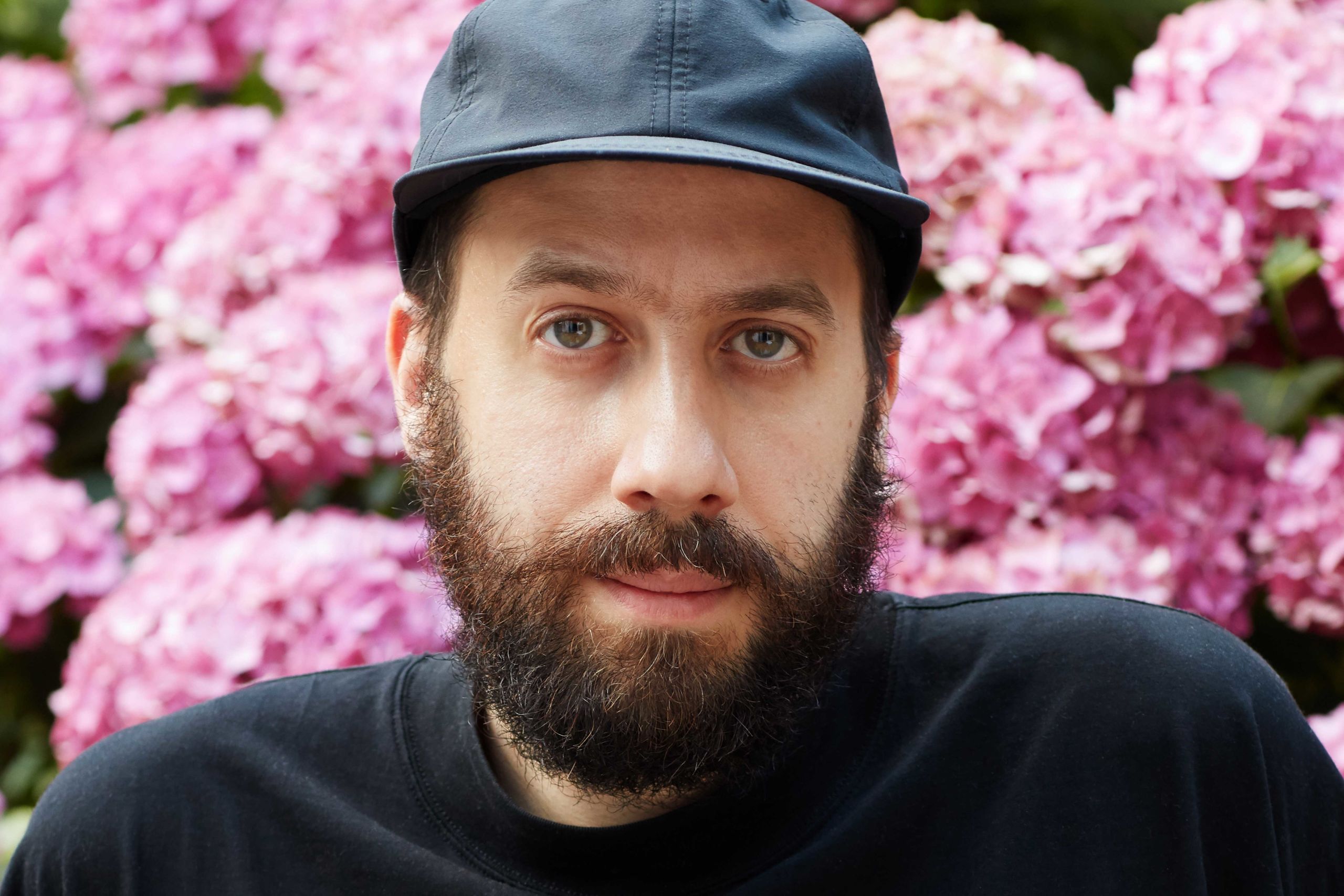
Gold Panda (Laura Lewis)
Gold Panda (Laura Lewis)
Born in Chelmsford, Essex, Gold Panda started writing beats and collaborating in 2009, beginning a decade-long journey that has seen three album releases.
His early collections of remixes quickly attracted the interest of record labels, bloggers and taste-makers, leading to requests for him to re-edit the tracks of Bloc Party, The Field, Health and Simian Mobile Disco.
In 2010 he released his debut album Lucky Shiner, winning the Guardian First Album award the following year. In 2013 he released his second album, Half of Where We Live, further developing his take on warm, emotionally infused electronic music. After a US tour and performances across Europe, his third album, Good Luck and Do Your Best, arrived in 2016, inspired by a series of trips to Japan, and complemented by a visual project in collaboration with award-winning photographer Laura Lewis.
Most recently Gold Panda has been exploring several musical projects, including a techno record, Selling, in partnership with Simian Mobile Disco’s Jas Shaw, and a series of hip-hop releases under his DJ Jenifa moniker. 2018 saw a new creative pairing with sitar player Anoushka Shankar celebrating the legendary Ravi Shankar ahead of the centenary of his birth.
Manu Delago percussion
Proms Debut Artist
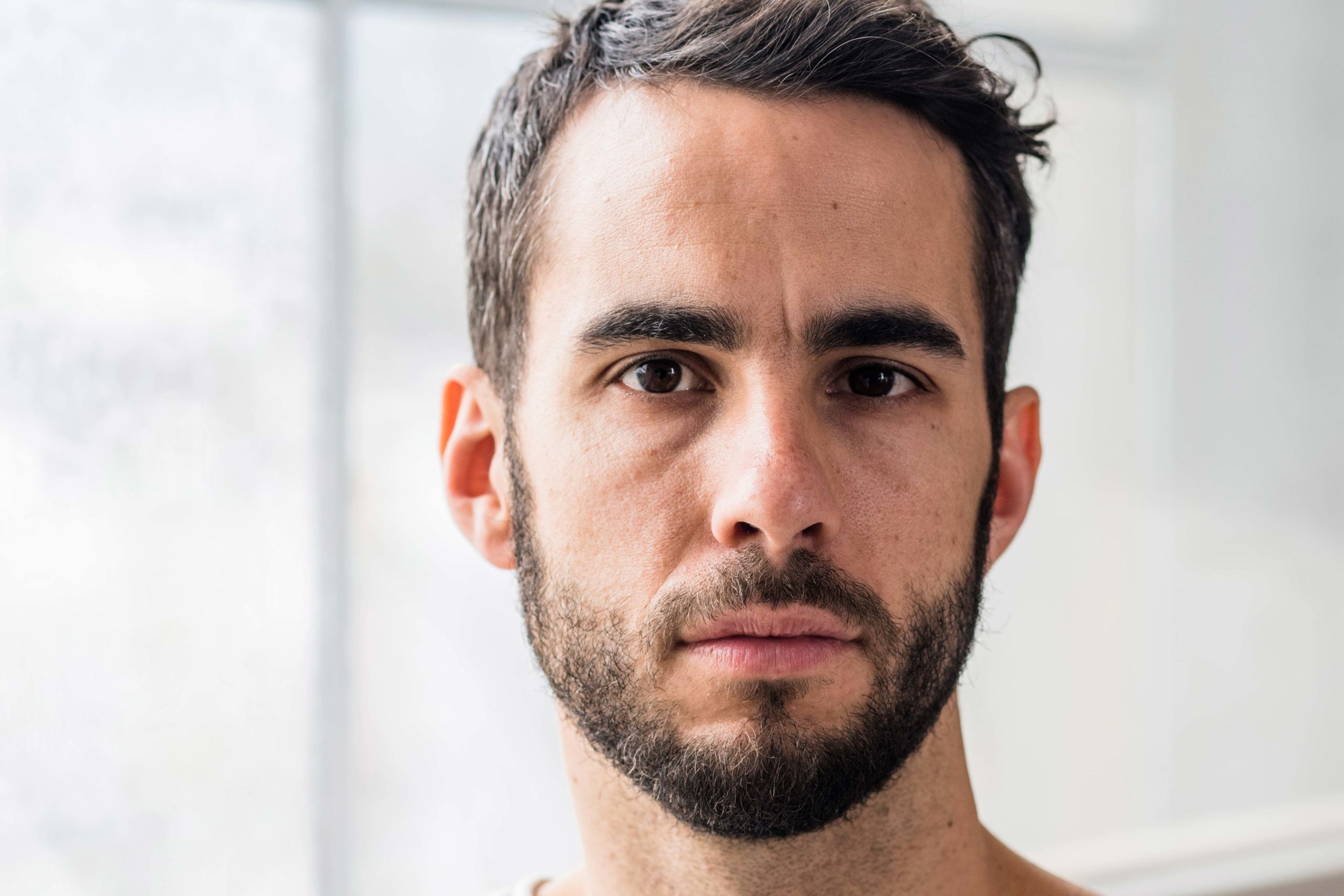
Manu Delago (Pascal Triponez)
Manu Delago (Pascal Triponez)
Austrian-born, London-based percussionist and composer Manu Delago learnt drums, accordion and piano from an early age. After playing drums in a number of bands, he began playing the handpan in 2003, and in the same year toured Europe with his rock band HotchPotch. Upon graduating from the Mozarteum in Innsbruck in classical percussion, he moved to London to study jazz drums at the Guildhall School of Music & Drama and composition at Trinity College of Music.
He founded and released albums with the band Manu Delago Handmade and the duo Living Room. His own discs feature guest artists such as Douglas Dare, Erik Truffaz and Andreya Triana and have been featured by 大象传媒 Radio 6 Music’s Don Letts and Tom Ravenscroft, as well as Radio 2’s Jamie Cullum, Alex Lester and Nitin Sawhney.
Manu Delago has guested on two albums for the psytrance producers Shpongle and on Björk’s album Biophilia (also appearing in four world tours with the Icelandic singer). His performing and writing collaboration with Anoushka Shankar began in 2013.
As handpan player and drummer, Manu Delago has performed on six continents and appeared with the Aurora Orchestra, Metropole Orkest, London Symphony Orchestra, Munich Chamber Orchestra and Zurich Chamber Orchestra.
His 2017 album Metromonk focused on electronic sound-manipulation of the handpan. For the multi-award-winning Parasol Peak (2018), he led an ensemble of seven musicians on a mountaineering expedition in the Alps. His most recent release, Circadian (2019), explores the theme of sleep-cycles.
Tom Farmer double bass
Proms Debut Artist
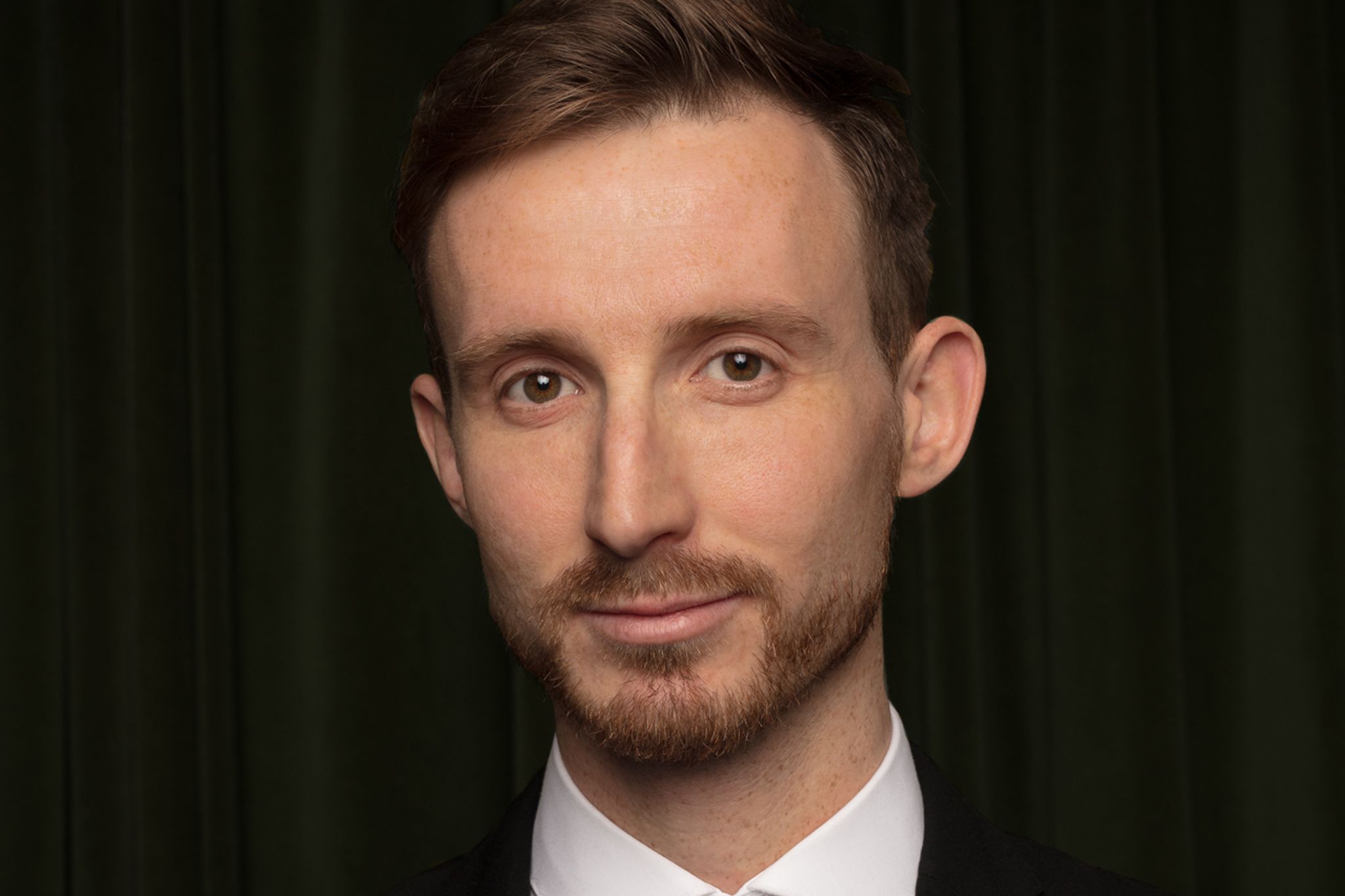
Tom Farmer (Chris Baker)
Tom Farmer (Chris Baker)
Bassist, pianist, composer and producer Tom Farmer began his musical career as a pianist and electric bass player before studying double bass at the Guildhall School of Music & Drama.
He joined the quartet Empirical in 2007, which won the inaugural EBU European Jazz Competition at the North Sea Jazz Festival the following year. Since then the group has appeared at leading international jazz festivals and supported artists including Fly, Bobby Hutcherson, Branford Marsalis, Joshua Redman, Archie Shepp and John Scofield. Among Empirical’s awards are Best Jazz Act at the Urban Music Awards (2016), Best Ensemble at the Parliamentary Jazz Awards (2016) and Best Jazz Act at the MOBO Awards (2010).
Tom Farmer co-leads the Big Screen Trio, alongside David Newton and Matt Skelton, with which has toured throughout the UK. He has also toured extensively with Anoushka Shankar, Sarah McKenzie and Joe Stilgoe (also playing and singing in Stilgoe’s big band).
He plays an active role in the London and UK jazz scene and records and performs with many of the country’s leading jazz voices, including Ant Law, Ivo Neame and Kansas Smitty’s.
As a composer his works have been performed on 大象传媒 Radio 3 as well on Jamie Cullum’s 大象传媒 Radio 2 show. He also works as a producer and musical director, and has given masterclasses at music colleges around the UK.
Britten Sinfonia
Britten Sinfonia was established in 1992 as a bold reimagining of the conventional image of a chamber orchestra. It is an Associate Ensemble at the Barbican in London, is Resident Orchestra at Saffron Hall in Essex and has residencies in Norwich and Cambridge. It performs an annual chamber music series at London’s Wigmore Hall and appears regularly at major UK festivals, including the Aldeburgh, Brighton and Norfolk & Norwich Festivals and the 大象传媒 Proms. The orchestra has toured to the US, broadcasts regularly on 大象传媒 Radio 3 and has made award-winning recordings.
Recent and current collaborators include folk/rock musician Keaton Henson and dancer/choreographer Pam Tanowitz. Over the past 28 years the orchestra has commissioned more than 200 new works from both emerging and established composers, most recently Thomas Adès, Gerald Barry, Shiva Feshareki, Emily Howard, Brad Mehldau and Steve Reich.
Britten Sinfonia musicians work on creative and therapeutic projects with pre-school children, teenagers, young carers, people suffering from dementia, life-time prisoners and older people at risk of isolation. The orchestra’s annual OPUS competition offers unpublished composers the chance to receive a professional commission. Members of Britten Sinfonia Academy, the orchestra’s youth chamber ensemble for talented young performers, have performed in museums, improvised with laptop artists, led family workshops and appeared at the Latitude Festival.
First Violins
Jacqueline Shave
Marcus Barcham Stevens
Róisín Walters
Beatrix Lovejoy
Fiona McCapra
Clara Biss
Ruth Ehrlich
Katherine Shave
Second Violins
Miranda Dale
Nicola Goldscheider
Alexandra Caldon
Suzanne Loze
Anna Bradley
Judith Stowe
Violas
Clare Finnimore
Meghan Cassidy
Bridget Carey
Rachel Byrt
Tom Hankey
Cellos
Caroline Dearnley
Ben Chappell
Joy Hawley
Julia Vohralik
Juliet Welchman
Double Basses
Stephen Williams
Roger Linley
Ben Russell
We hope you enjoyed tonight’s performance
For full details of 大象传媒 Proms 2020 concerts and broadcasts, visit bbc.co.uk/proms
Online programme produced by 大象传媒 Proms Publications
